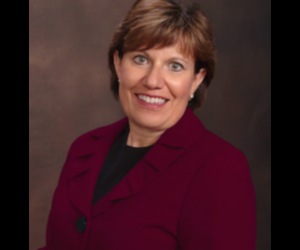Premenopausal Women With Low Bone Density
LOW BONE DENSITY CAN OCCUR IN PREMENOPAUSAL WOMEN
Although osteoporosis is mostly a disease of older women, under certain circumstances, premenopausal women may also be vulnerable. There are disease states and medications that cause low bone density in premenopausal women. These including: celiac disease, cystic fibrosis, rheumatoid arthritis, epilepsy, eating disorders, and any disease with increased inflammation. In addition certain lifestyle habits may contribute to or exacerbate premenopausal bone loss; such as smoking, excessive drinking, inadequate calcium and vitamin D, and insufficient exercise. Some cases are genetic. In others, the cells that form new bones do not function well. Fractures can also affect women in the third trimester of pregnancy or during breastfeeding. In other cases, we just don’t know the cause.
TESTING FOR LOW BONE DENSITY IN PREMENOPAUSAL WOMEN
In most cases, we discourage premenopausal women from having bone density exams. For one thing, it’s difficult to interpret the results in a younger woman. She may be at the lower end of the bell-shaped curve, but that doesn’t mean a woman is at short-term risk for fractures. Further, a thin, petite woman may have a falsely low reading because the scan is two-dimensional, capturing height and width, but not the depth of a bone. Also, small women don’t need large bones because their bones are not bearing a lot of weight. On the other hand, there are situations in which measuring bone density is highly appropriate.
Bone density scans are to be performed if a premenopausal woman has a disease known to have a bad effect on the skeleton. It should also be performed if she’s had a fracture that’s not easily explained by the degree of trauma; a low-trauma fracture. A low-trauma fracture is defined as one that occurs with trauma equivalent to a fall from standing height or less. For example, a woman who breaks a bone after a fall on a sidewalk. This is in contrast to a high-trauma fracture that comes from falling down a flight of stairs or a motor vehicle accident.
CASES WHERE A MEDICAL EVALUATION IS NECESSARY
In cases where there is an unexplained broken bone, and low bone density is found on a bone density scan, it is very important do a thorough medical evaluation to make sure that there isn’t a treatable underlying cause. Celiac disease, for example, can be asymptomatic and may only present with fractures. Diagnosing an unsuspected underlying disease, such as asymptomatic celiac disease, and treating it specifically is much more effective than treating the low bone density itself. If a woman has celiac disease, it is usually much more effective to put her on a gluten-free diet than to give her medications to increase bone density.
LIFESTYLE APPROACHES TO TREATING LOW BONE DENSITY
If an individual has low bone density but no fractures, I usually recommend some lifestyle changes along with observation rather than medications. Lifestyle changes that may help prevent fractures and improve bone density include: quitting smoking, reducing or eliminating alcohol use, and engaging in plenty of weight-bearing exercise, such as walking, jogging, running, dancing, or using an elliptical machine. Interestingly, lifting weights doesn’t have a large effect on bone density, even though it’s a good thing to do for other reasons.
The individual should make sure she’s getting adequate calcium and vitamin D, preferably from her diet. WebMD has useful information on sources of dietary Vitamin D and calcium, http://www.webmd.com/food-recipes/guide/calcium-vitamin-d-foods. However, too much calcium could be harmful. She should make sure that the total between diet and supplements is not much more than 1000 mg per day. Similarly, too much Vitamin D can also be harmful. I usually recommend 1000 IU daily and then adjust to maintain the blood level at around 30 ng/ml.
BE CAUTIOUS ABOUT PRESCRIBING MEDICATIONS FOR LOW BONE DENSITY
Prescribing medications for childbearing-age women with low bone density is complicated. Some medications can cross the placenta. Biophosphonates are a Category C drug, meaning they should be avoided in pregnancy. Teriparatide and denosumab should not be used during pregnancy. To further complicate the issue; bisphosphonates may persist in the bones long after the patient is no longer taking them. They can even still cross the placenta after being discontinued. A woman of childbearing age should agree to use contraception if it is medically necessary to treat her low bone density pharmacologically.
Search Articles
Latest Articles
Be Up In Down Times; Mitzi Perdue
Be Up In Down Times; Mitzi PerdueAbout The Episode Mitzi Perdue, along with Mark Victor Hansen, is the co-author of How to Be Up in Down Times. She is a health and science writer with an honors BA from Harvard and an MPA from George Washington University. Mitzi...
A fight for freedom everywhere’: Brighton Beach gala highlights Brooklyn’s solidarity with Ukraine
https://www.brooklynpaper.com/brighton-beach-freedom-gala-ukraine/ Publication –brooklynpaper.com
Ukrainian Courage and Hope: Trauma, Trafficking, Troll Farms, and Tenacity With Mitzi Perdue
Ukrainian Courage and Hope: Trauma, Trafficking, Troll Farms, and Tenacity With Mitzi PerdueWatch The Episode About The Episode Join war correspondent Mitzi Perdue as she shares compelling insights from her four journeys to Ukraine, including on-the-ground reporting...
MITZI PERDUE: Are Critics Of Trump’s Heated Rhetoric Against Zelensky Missing His Strategy?
https://dailycaller.com/2025/02/26/opinion-critics-trumps-heated-rhetoric-against-zelensky-missing-strategy-mitzi-perdue Publication –dailycaller.com
Subscribe to Updates
About Author

Mitzi Perdue is the widow of the poultry magnate, Frank Perdue. She’s the author of How To Make Your Family Business Last and 52 Tips to Combat Human Trafficking. Contact her at www.MitziPerdue.com
All Articles
Volatile Markets? Try Non-Correlated Investments
Volatile Markets? Try Non-Correlated InvestmentsAt a recent meeting of the Ritossa Family Office Summit in Dubai, Jagdeesh Prakasam said something that caught the attention of the several hundred investors who were listening to him. He said that by using artificial...
Family Governance Issues: Are You Struggling with Them
Family Governance Issues: Are You Struggling with ThemFamily businesses resemble countries in at least one key way. When you get the governance right, people have a chance at prospering and thriving. If you get it wrong, the result can mean unending distress. Babetta...
Family Businesses, a Unique Treasure to Their Communities
Family Businesses, a Unique Treasure to Their CommunitiesOlivier de Richoufftz from the Family Business Foundation knows something you probably don’t know about the Michelin Tire Company. This company contributes something of amazing and irreplaceable value to its...
What Coaching can do for you
What Coaching Can Do For YouKaren Snyder founded Concordia Consulting 27 years ago. Through her work, she helps senior executives and their teams achieve extraordinary results by working collaboratively. What has Karen learned in those 27 years that can help all of...
Entrepreneurs in the Family Business: Without Them, You’re at Risk!
Entrepreneurs in the Family Business: Without Them, You're at Risk!Entrepreneurship is essential for a family business to thrive. According to Bobby Stover, EY Americas Family Office Leader, “A family business that doesn’t find new opportunities is a family business...
Chad Naylor’s Investments and His Not-So-Secret Sauce
Chad Naylor’s Investments and His Not-So-Secret SauceBy Mitzi Perdue Chad Naylor from Naylor & Company Investments, LLC has an investment thesis that’s enabled him to make some extraordinary profits. Since the company’s founding over 14 years ago, their...






